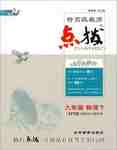题目内容
I.阅读理解[2015 •湖北八市高三联考]
If you need glasses to read this, you are among the ma?jority of Chinese students. That's because most students in China are short-sighted which means they can only see things close up and distant things will be blurry. Four fifths of high school students wear glasses and now more and more children in primary school need glasses, too.
This epidemic of poor eyesight has two very simple cau?ses: too much time spent indoors studying and too little time spent outdoors playing. Reading and writing for hours and hours, sometimes in poorly lighted rooms, causes eyesight to weaken. But students have to do this because there is so much pressure on them to succeed in school. And because they spend so much time indoors at school and at home, they have less time to spend outdoors enjoying the sun.
The sun, as a consequence, is important in developing good eyesight. Exposure to daylight releases a chemical in the eyes that prevents, or at least delays, short-sightedness. Ac?cording to a study by Ian Morgan of Australian National Uni?versity, Australian children and Chinese children have the same level of eyesight before they start school, but once they enter primary school, Chinese children only spend about an hour a day outside, while Australian children spend three to four hours each day in the sunshine. The result is that while about 40 per cent of Chinese primary school students need glasses, only 3 per cent of Australian children do.
Wearing glasses may not seem like a big deal. For some, wearing glasses can even be an opportunity to make a fashion statement. But poor eyesight at a young age can have serious long-term consequences. As you get older, your eyesight can worsen and lead to things like macular degeneration(黄斑变性),a condition of the eyes for which there is no cure and which can eventually lead to blindness.
With all that in mind, don't you think it's time to give your eyes a break? Try spending a little less time inside and go for a walk in the park, instead. It's the healthy thing to do and your eyes will thank you for it.
1. What does the underlined word "blurry" in Paragraph 1 mean?
A. Unpopular. B. Unpleasant.
C. Unclear. D. Unconscious.
2.How should the students protect their eyesight according to the passage?
A. They should study less and less.
B. They should stay longer outdoors.
C.They should wear sunglasses.
D. They should have a longer rest in bed.
3.It can be inferred from the passage that is to blame for the poor eyesight of Chinese children.
A. the ever-worsening bad weather
B. the ever-increasing burden of study
C. the ever-decreasing sunny days
D. the ever-decreasing period of study time
4. What is the purpose of this article?
A. To explain why Chinese students are short-sighted.
B. To admire Australian children's good eyesight.
C. To criticize the present education system.
D. To call on people to protect Chinese children's eye?sight.
Ⅰ.阅读理解
[文章大意]本文是一篇说明文,介绍了导致视力下降的两种常见原因以及保护枧力的最佳方式:多参加户外活动,多晒太阳。
1.C词义猜测题。根据该词所在的句意可知,近视意味着只能看清眼前的东西,远处的事物将会是"模糊不清的"。故选C项。
2.B细节理解题。综合全文可知,阳光有益于视力,因此学生们不要总是待在家里,要多参加户外活动以锻炼视力。故选B项。
3. B推理判断题。根据文章第二段可知,导致视力下降的主要原因有两个:待在室内学习的时间太长;户外玩耍的时间太短。其根源是他们为了学业成功身上背负着太多的压力。故选B项。
4. D写作意图题。本文的写作目的是呼吁人们保护中国孩子的视力。故选D项.

 特高级教师点拨系列答案
特高级教师点拨系列答案